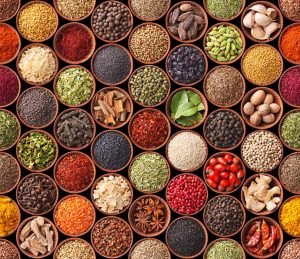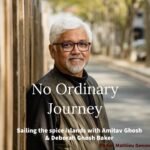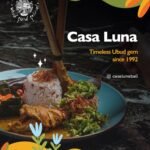
It’s no secret that I love Balinese coffee and for nearly thirty years my day has began with a strong cup of it. A heaped teaspoon of ground coffee topped with boiling hot water, tubruk-style, is the way I like it. While the global thirst for coffee is brewing out of control, a cup of Bali’s deeply aromatic and richly flavoured single origin beans is more satisfying to me than any latte-arty frothy concoction. Most Balinese I know start their day with it: strong, hot, sweet and black, maybe served with fried bananas or jaja kukus, sticky rice cakes.
Kintamani and Singaraja, in the northern highlands, are the homes of Bali’s finestcoffee. As with many of Bali’s everyday ingredients and substances, coffee is not native to the island. In the 1700’s, the Dutch transplanted, or rather, smuggled, the trees from Yemen and cultivated them in the highlands of Java, followed by Sumatra, Sulawesi and, eventually, Singaraja and Kintamani.
When the coffee trees are in flower, a drive through the plantationsis nothing short of glorious. Balinese coffee has a certain earthiness, nuttiness and maybe even a mellow hint of chocolate that makes it so distinctive and addictive. It is naturally low in caffeine and acid and some say it is redolent of sweet mango. Boil pandan leaves with water and pour over the ground coffee and you have something close to perfection – what a Balinese friend of mine calls coffee moksha! Or try it with ginger and you have wedangjahe, warming, intense and considered medicinal. It’s a favourite of the old folk.
Coffee in Bali has always been synonymous with conversation and no subject is taboo when armed with this precious brew. It opens the debate on all subjects from lovers to loans, from religion to rice fields.
Warung kopi, or warkop, have long been the original coffee houses. In the early days, there was a certain quaint rustic charm about them, a touch of Balinese bohemia that became even more poetic at night under the light of a kerosene lamp. Warung Kopi were the informal meeting places where you rubbed shoulders with other members of the village. You could discuss all things political there, plan a revolution, or plot any kind of mayhem. Like a public bar, primitive internet cafe or CNN with daily news updates, warung kopi were fired with a certain kind of liberalism that safely existed beyond the government or palace walls.
Run by a local Ibu or mother, tasty snacks such as fried bananas, jukutmesantok, rujak or bubur were offered as accompaniments to the brew. And it helped if her daughter, who usually served alongside her, was beautiful, a bungadesa, or flower of the village. Picture the scene of a dozen young farmers huddled together on wooden benches sucking on crackling clove cigarettes and engrossed in local gossip while furtively peeking at the glowing raven-haired beauty. You can imagine the subject of their conversation.
And if beauty is only skin deep, in Bali it is coffee that has always provided the reference points. Children of mixed race in Bali are affectionately called kopi-susu – coffee with milk – conjuring up the image of creamy, soft brown skin. When people comment on the darkness of a man’s skin he is always ‘as black as coffee’, and chances are, so the saying goes, just as sweet.
Nowadays warung kopi have become a little more sparkling in appearance and are lit by the almighty fluorescent light as opposed to old lamps or candles. Some might even have aluminium-framed cases filled with food and cakes to greet you and fridges containing cold drinks for parched travellers, but in the village,warung kopi are relatively unchanged.
For the visitor, the worldwide coffee craze has hit Bali’ s café culture and suddenly the spotlight is on Indonesian beans. In eateries across the island, blends from Sumatra, Sulawesi, Java and Bali blend are the height of fashion with character notes scribbled on blackboards explaining their unique flavour. Wine lists have become secondary to this elegant black brew, as beans, not grapes, reach record popularity.
When Balinese travel they take their own coffee with them. Like language, it is somehow linked with identity, ethnicity and regional pride. And there is a subtle drama or mystique wrapped up in coffee’s full-bodied persona, rather like an Italian opera. You can almost hear Pavarotti singing with each mouthful. It has an aura of substance and a magical quality that brings people together.
In the meantime, I still continue to drink my pure Balinese coffee at the waking hour and relish the integrity and purity of this glorious bean. And to quote an old proverb; coffee and love taste best when hot; two things I could not live without. Thus is the power of Balinese coffee.






